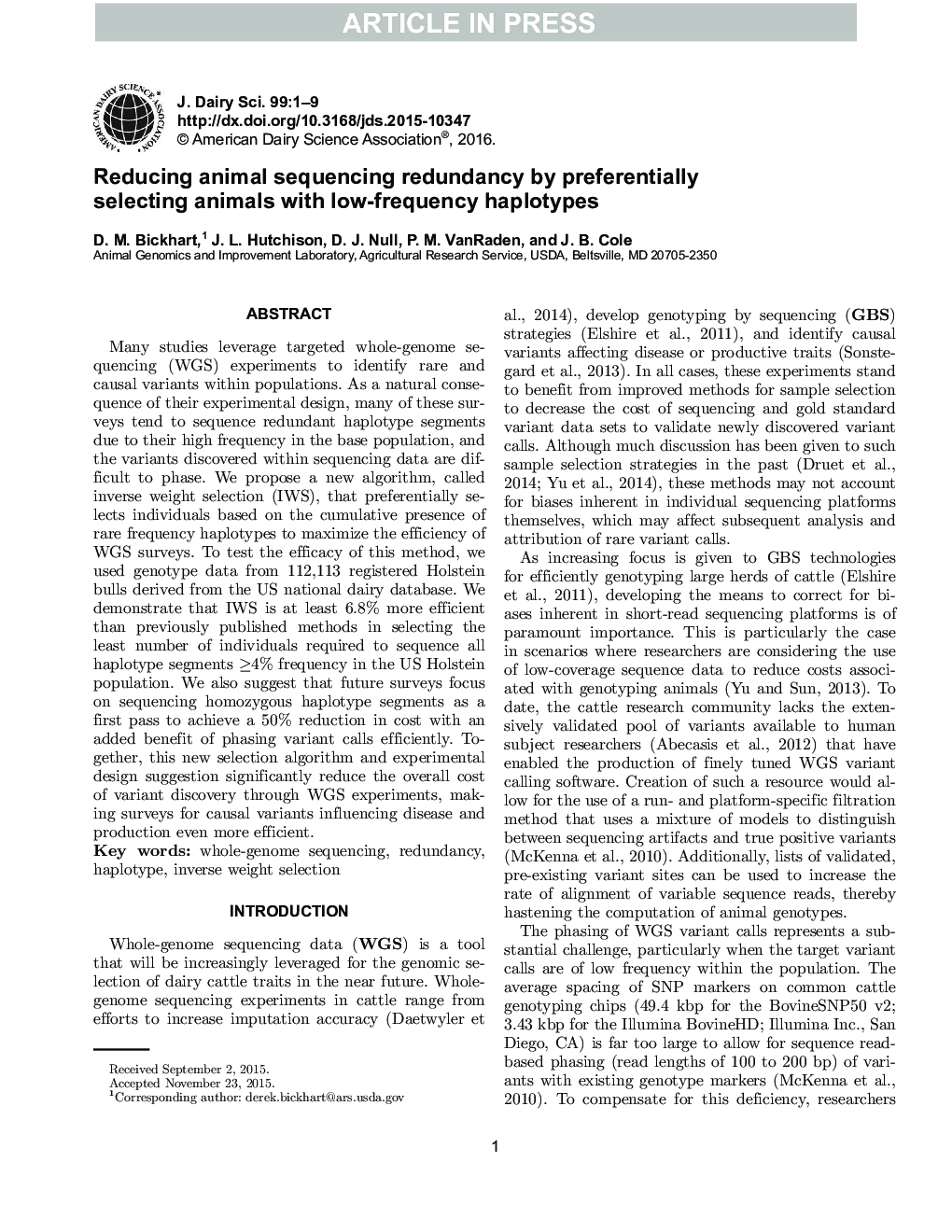| کد مقاله | کد نشریه | سال انتشار | مقاله انگلیسی | نسخه تمام متن |
|---|---|---|---|---|
| 10973649 | 1108017 | 2016 | 9 صفحه PDF | دانلود رایگان |
عنوان انگلیسی مقاله ISI
Reducing animal sequencing redundancy by preferentially selecting animals with low-frequency haplotypes
دانلود مقاله + سفارش ترجمه
دانلود مقاله ISI انگلیسی
رایگان برای ایرانیان
موضوعات مرتبط
علوم زیستی و بیوفناوری
علوم کشاورزی و بیولوژیک
علوم دامی و جانورشناسی
پیش نمایش صفحه اول مقاله

چکیده انگلیسی
Many studies leverage targeted whole-genome sequencing (WGS) experiments to identify rare and causal variants within populations. As a natural consequence of their experimental design, many of these surveys tend to sequence redundant haplotype segments due to their high frequency in the base population, and the variants discovered within sequencing data are difficult to phase. We propose a new algorithm, called inverse weight selection (IWS), that preferentially selects individuals based on the cumulative presence of rare frequency haplotypes to maximize the efficiency of WGS surveys. To test the efficacy of this method, we used genotype data from 112,113 registered Holstein bulls derived from the US national dairy database. We demonstrate that IWS is at least 6.8% more efficient than previously published methods in selecting the least number of individuals required to sequence all haplotype segments â¥4% frequency in the US Holstein population. We also suggest that future surveys focus on sequencing homozygous haplotype segments as a first pass to achieve a 50% reduction in cost with an added benefit of phasing variant calls efficiently. Together, this new selection algorithm and experimental design suggestion significantly reduce the overall cost of variant discovery through WGS experiments, making surveys for causal variants influencing disease and production even more efficient.
ناشر
Database: Elsevier - ScienceDirect (ساینس دایرکت)
Journal: Journal of Dairy Science - Volume 99, Issue 7, July 2016, Pages 5526-5534
Journal: Journal of Dairy Science - Volume 99, Issue 7, July 2016, Pages 5526-5534
نویسندگان
D.M. Bickhart, J.L. Hutchison, D.J. Null, P.M. VanRaden, J.B. Cole,